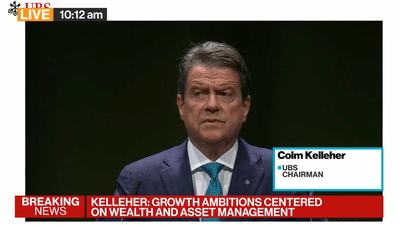Integrating Credit Suisse into UBS will take three to four years, presenting considerable risks, according to UBS Chairman Colm Kelleher. On Wednesday, he addressed an audience of over a thousand shareholders in Basel, Switzerland.
Kelleher told the audience that last month’s emergency rescue of Credit Suisse was a “historic day and a day we hoped would never come.” On that day, UBS agreed to buy its rival for 3 billion Swiss francs to prevent a bank failure that could’ve sparked the next financial crisis.
“You have to understand that there is a huge amount of risk in integrating these businesses,” Kelleher said, adding the integration is expected to take approximately three to four years, excluding the non-core investment bank portfolio of Credit Suisse.
He explained, “Credit Suisse was an icon of the Swiss economy, a bank that played a vital role in the economic development of Switzerland and a global and respected player.” And he said, “Credit Suisse will no longer be an independent company.”
In a separate presentation, UBS Vice Chairman Lukas Gahwiler mentioned that it was too early to talk about headcount reductions and the future of Credit Suisse’s Swiss business. Multiple reports show that UBS plans to reduce 20-30% of the combined entity’s global workforce.
On Wednesday, Sergio Ermotti will reassume the role of UBS CEO to oversee the integration. Ermotti, who previously ran UBS for nine years, will succeed Ralph Hamers.
A brief overview of Ermotti’s background: He was in charge of UBS from 2011 until February 2020, playing a pivotal role in the bank’s resurgence after the 2008 financial crisis. Ermotti is credited with restrategizing the bank’s core focus to less risky businesses, including scaling down investment bank operations while boosting its wealth management unit.
Meanwhile, on Tuesday, Credit Suisse Chairman Axel Lehmann apologized to investors for imploding the bank.







